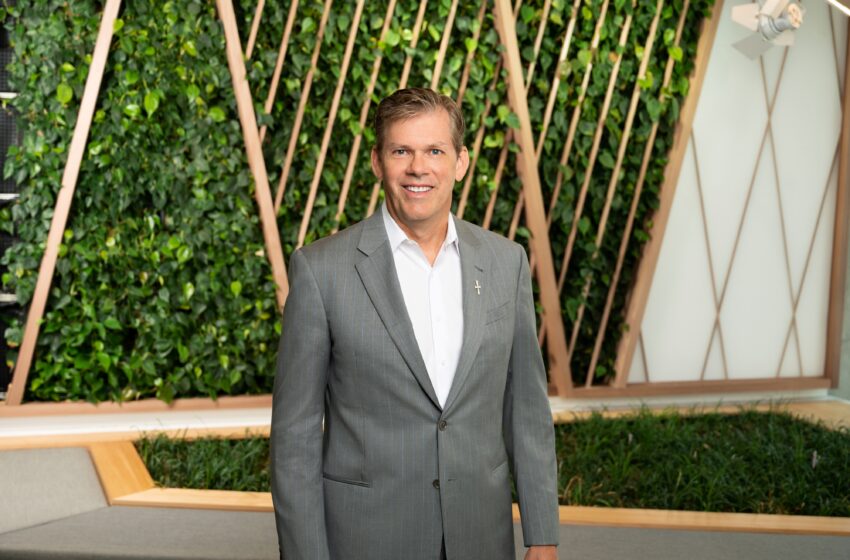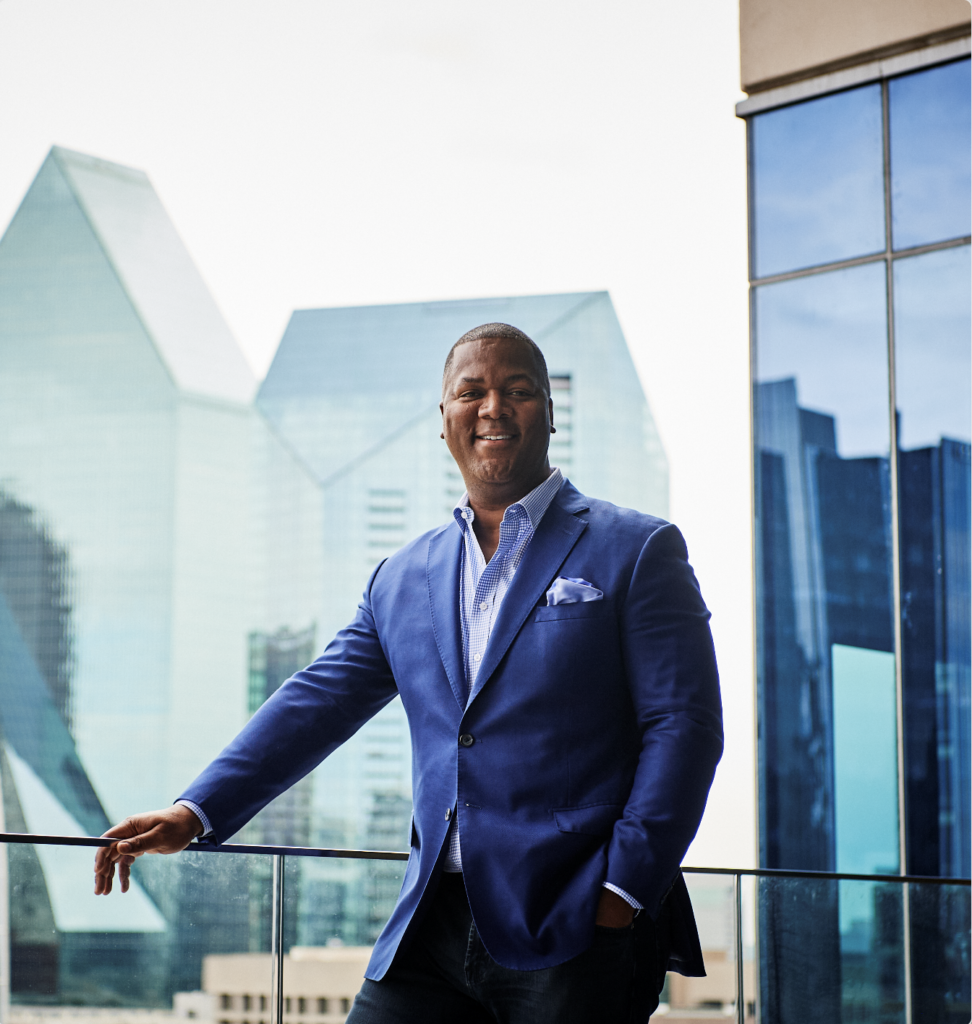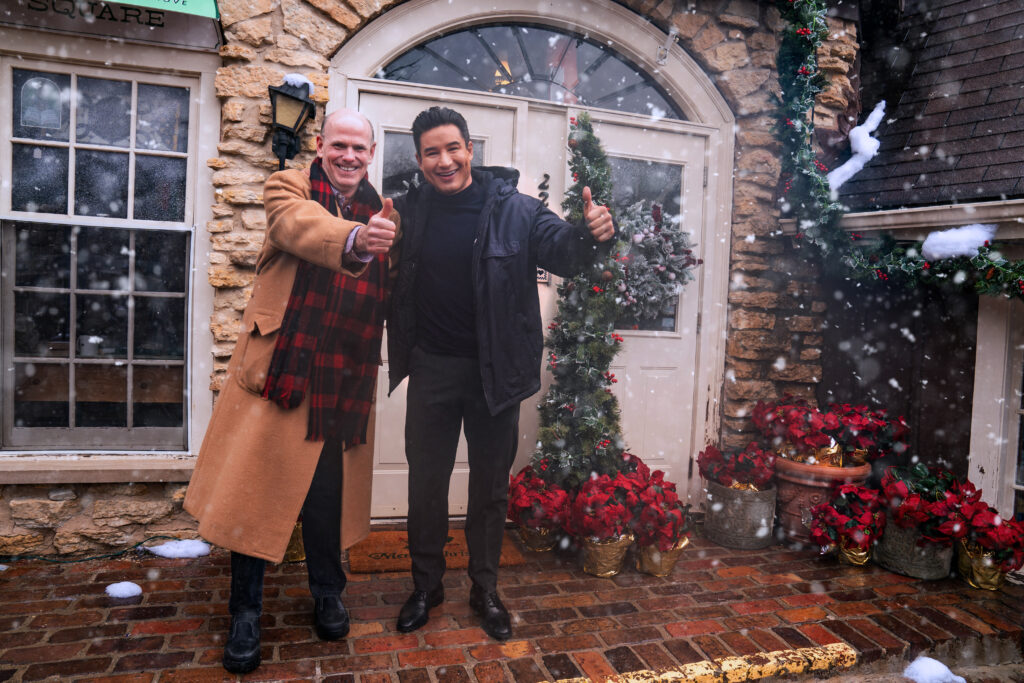CEO Interview Series: Jim Fish, CEO of Waste Management
- April 16, 2024

Jim Fish, the CEO of Waste Management (WM), has carved a distinct path through the corporate world, beginning with an accounting degree from Arizona State University—a choice he describes as a “good boot camp” for life. Despite not finding his true career direction until the age of 50, Jim’s journey through firms like KPMG and America West Airlines, coupled with a transformative MBA experience at the University of Chicago, has equipped him with a unique blend of skills and a profound understanding of leadership dynamics. Under his stewardship, WM has navigated the complex challenges of modern business, from technology integration to workforce motivation. This profile explores how Jim’s down-to-earth leadership style and strategic thinking have shaped WM’s success and his vision for its future in a changing world.
When you got your accounting degree at Arizona State University, did you know what you wanted to do in your career?
I didn’t know what I wanted to do until I was about 50 years old, but an accounting degree felt like a good starting point. I still tell people it’s a good degree to have, a good boot camp. You absolutely will have a job coming out of school with an accounting degree. I took a job with KPMG out of school and though I quickly moved off of public accounting, I use that knowledge to this day.
When did you transfer into management roles?
After KPMG, I went to work for America West Airlines, a small startup airline based in Phoenix. I worked in analyst roles and then became a manager in financial planning. Later, I moved to TWA and took on director-level roles. Because TWA was cash-strapped at the time, they gave me a whole bunch of stuff I had no idea how to do. It was a good learning experience. I met my wife, Tracy, there. We’ve been married for 25 years.
As you moved through these management roles, did you have mentors?
I did have mentors. One of them was Maurice Myers, the CEO of America West Airlines. I was five levels under him, but I ran into him one day walking through the parking lot. I introduced myself, and he said, “I think I’ve seen your work. We should grab lunch sometime.” I was blown away that the CEO had asked me to have lunch. We developed a relationship, and later, he wrote me a letter of recommendation for the University of Chicago when I went to get my MBA.
I do think it’s important to have a mentor, but those relationships tend to be organic. We’ve tried a couple of times to have more of a formalized mentor-mentee program for certain high-potential folks at WM. We’ve found that it doesn’t work as well when you’re assigning a mentor.
What prompted you to go to the University of Chicago for your MBA?
A lot of people who go to schools like Chicago are seeing dollar signs or CEO roles in their futures. But I always felt like I wasn’t the smartest guy in the class—and I wasn’t—but going to a school like Chicago gave me self-confidence. I was sitting in a classroom with people like Satya Nadella, who was the smartest guy in the room. I took a couple classes with him. We later developed a nice friendship.
Going to Chicago helped me think about doing something bigger. I originally didn’t have a CEO job in the back of my head. But every successive position I took, I always felt like, “Gosh, if I had the next job up, I could make some changes.” The salary never mattered to me. What always mattered to me was: “Can I make a contribution — particularly on the people side?” I think that’s something I got from my mom. She was a very people-oriented person.
In leadership roles, I’ve always looked at what we can do on the people side. It’s not necessarily monetary. Money isn’t really a driver of people’s motivation to work for a company. It matters, but it’s not at the top of the list. If your job isn’t fulfilling, or if your boss isn’t giving you feedback, or if there’s no succession planning in your organization, or if you don’t feel valued, then you’re going to leave.
People feel so often that CEOs are completely disconnected from the people in their organizations. Some people may say that about me, but I’d like to think that the pervasive view of Jim Fish is that he is pretty well connected with people at the field level, with the entry-level drivers and technicians, and that he values us as people, all 50,000 employees.
How is WM handling the post-COVID “return to the office” thing? Do you feel it’s important for your office staff to be onsite together?
I do think there’s value to impromptu conversations at work. An idea pops into your head and you stop into someone’s office and ask what they think about it. Those conversations may not happen if you’re working from home. There are great collaboration products, of course, but it’s not quite the same. The impromptu water cooler discussion doesn’t always take place. Right now, we’re three days a week required to be in the office: Tuesday, Wednesday, and Thursday.
When you stepped in the CEO job, what most surprised you?
By the time I became CEO, I had been at WM for 15 years. There were a few of us who were identified as possible successors, but there wasn’t a lot of coaching going on or looking at the specific traits needed in the next CEO. We didn’t do a lot of that then, but we are doing that now. That way, when I eventually decide to hang up the cleats, we will have people ready. It’s important not just for CEO jobs but for all of our management positions.
But when I first became CEO, it happened more quickly than I expected. I remember calling my wife and saying, “Guess what happened today? I got promoted to CEO.” She said, “That’s great, and by the way, can you take the recyclables out when you get home?”
Fortunately, 2016 through 2019 was fairly uneventful. We’d been focusing on labor for a while because fewer and fewer people, particularly in Gen Z, seem interested in driving trucks or operating heavy equipment. We knew that was a risk, and we wanted to use technology to offset some of that risk, to become more efficient so we didn’t need as many drivers—not through layoffs, but through natural attrition. That was the big focus those first three or four years.
Then, COVID came along. Waste management isn’t something that can stop. Most of our people never went home a single day. They worked literally the day after the Monday after the pandemic was announced, driving a truck or operating heavy equipment, or on a sort line in a recycle plant, or working as a technician in a natural gas plant.
In conjunction with all the pressures every business experienced during COVID, there was also a lot of pressure on CEOs to comment on social issues. I’ve had a personal policy to not comment on social issues, particularly if they don’t have any impact on my business. I think that’s a good rule of thumb. Some people may think you’re wimpy for not saying something about sensitive societal or political issues. And I have an opinion on all of them. But do I need to use the WM brand, which has evolved over a period of 50 years, to platform my opinion? I happen to be the CEO of this company, but it’s not my brand. I don’t want to risk our relationship with half of our customer base. If I take a stance, I’m almost guaranteed to upset 50% of my customers and 50% of my employees and 50% of my investors. On the other hand, if I don’t take a stance at all, there will be a very small group that says, “I’m disappointed you didn’t take a stance on that,” and I will accept that criticism. I’d much rather have that than lose half our stakeholders in various areas.
Many of us are driving around in Teslas now, but we’re still waiting for electric garbage trucks that we can’t hear coming down the road. Will that ever be a reality?
We continue to look at EVs, but there’s not a good EV solution right now for heavy trucks. We plan to pivot quickly when it becomes available. We previously pivoted almost the entire fleet from diesel to CNG [compressed natural gas]. Industry vehicles that use CNG offer a 90% reduction in emissions compared to those that run on diesel, and they’re quieter. When the time comes and EVs are capital-efficient, we hope to make the same pivot to EVs. Right now, the weight of the batteries is a big issue, as is the fact that heavy truck EVs can only go about 75 miles before they need to be recharged, compared to the average length of haul for our trucks, which is about 120 miles.
Any advice to other aspiring CEOs?
One thing comes to mind immediately: Have priorities in life outside of your job. For me, at the top of the list is my Christian faith. And then the second on the list is my family. And then down at number three is my job. It’s not that number three isn’t important—it’s that number one and number two are more important. It helps take a lot of the pressure off. I’m not sure how I would do the job without those two.
The other thing I would say is that if you start feeling like you’re the smartest person in the room, reconsider—because it’s almost never the case. There’s always somebody smarter. My dad had a saying: “You may not be the best, but you will rise above the rest.” I think what he meant by that was: You may not be the smartest, you may not have the most money, you might not be the best player, whatever, but you can still rise above the rest if you use those things God gave you. I think that’s true in the CEO job. Once you start feeling like, “You know what? I am the best,” you should reflect a bit because, first of all, that doesn’t come off very well, and second, it’s probably not true.





